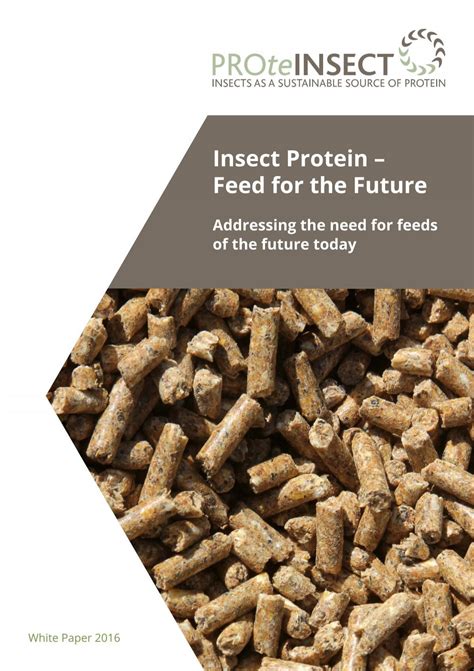Introduction
As the demand for protein grows exponentially, the traditional livestock industry faces immense challenges in meeting the demand sustainably. Insect-based feed emerges as a revolutionary solution, promising to transform the biotechnology industry by 2025.

Benefits vs. Challenges
Benefits of Insect-Based Feed:
- High protein content: Insects contain up to 70% crude protein, surpassing the protein content of soybeans and fishmeal.
- Sustainable production: Insects require less feed, water, and land compared to livestock, minimizing environmental impact.
- Waste reduction: Insect farming can repurpose organic waste streams, reducing landfill waste and promoting circularity.
Challenges of Insect-Based Feed:
- Cost: Currently, insect production costs are higher than traditional feed sources, but ongoing research aims to reduce expenses.
- Regulations: Some countries have regulations that need to be addressed before insect-based feed can be widely adopted.
- Consumer perception: Cultural barriers and concerns about insect consumption must be overcome to increase market acceptance.
Applications in Biotechnology
- Aquaculture: Insect-based feed can replace fishmeal in aquaculture, reducing pressure on wild fish stocks.
- Poultry and livestock: Insect-derived proteins can supplement or replace conventional feed ingredients, improving animal health and productivity.
- Pet food: Insect-based ingredients offer hypoallergenic and nutritious options for pet food formulations.
Evolution by 2025
By 2025, the insect-based feed industry is projected to grow exponentially. Innovations in insect farming technology, reduced production costs, and increased consumer demand will drive this growth.
Case Studies
- Agricel: A Belgian company specializing in insect farming and processing for animal feed and fertilizers.
- Protix: A Dutch company pioneering insect-based feed production for aquaculture, livestock, and pets.
- Entomofin: A Finnish company developing insect-based ingredients for the food and feed industry.
Tables
| Organization | Insect-Based Feed Market Value | Projected Growth Rate |
|---|---|---|
| Grand View Research | $7.6 billion in 2021 | 28.4% CAGR (2022-2030) |
| Allied Market Research | $6.3 billion in 2021 | 24.7% CAGR (2022-2030) |
| Markets and Markets | $4.8 billion in 2021 | 32.2% CAGR (2022-2030) |
| Country | Regulations on Insect-Based Feed |
|---|---|
| United States | FDA approval required for use in aquaculture |
| European Union | Novel food status granted for certain insect species |
| Canada | Regulations being developed |
Common Mistakes to Avoid
- Neglecting consumer education: Consumers need to be informed about the benefits and safety of insect-based feed.
- Overestimating production capacity: Insect farming requires careful planning and scalability to meet market demand.
- Ignoring sustainability certifications: Ensuring ethical and environmentally responsible insect farming is crucial for consumer acceptance.
FAQs
- Q: Is insect-based feed safe for animals?
- A: Yes, research shows that insect-based feed is safe and nutritious for both aquaculture and livestock.
- Q: What are the environmental benefits of insect-based feed?
- A: Insect farming reduces greenhouse gas emissions, water consumption, and land use compared to livestock production.
- Q: How can I get involved in the insect-based feed industry?
- A: Consider investing in insect farming companies, supporting research and development, or promoting consumer awareness.
- Q: What is the future of insect-based feed?
- A: By 2025, insect-based feed is expected to revolutionize the biotechnology industry, providing sustainable and protein-rich solutions for animal feed.
Reviews
- “Insect-based feed has the potential to transform aquaculture and create a more sustainable food system.” – Dr. Peter Tyedmers, University of New Hampshire
- “Insect-derived proteins offer exciting opportunities to improve animal nutrition and reduce environmental impact.” – Dr. Brooke Donovan, Iowa State University
- “The insect-based feed industry is poised for rapid growth as consumers become more aware of its benefits.” – Francesca De Biase, Analyst at Allied Market Research
- “We believe that insect-based feed will become an essential part of the global food supply chain in the coming years.” – Jan Segers, CEO of Protix





















